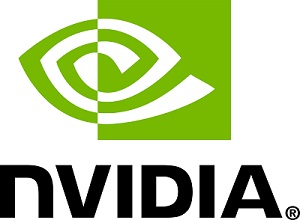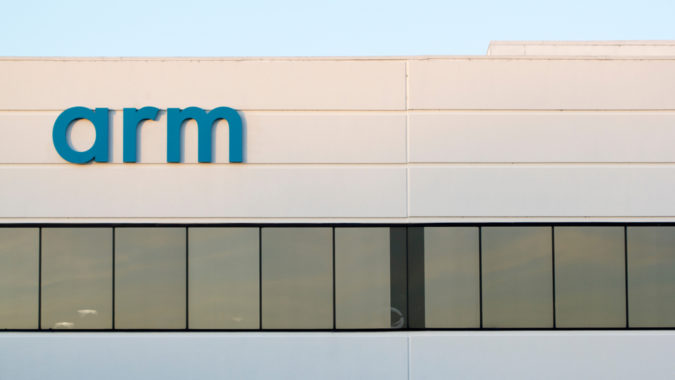Nvidia’s proposed $40 billion acquisition of chip IP vendor Arm has hit a major roadblock after a report from a U.K. regulatory agency criticized the deal, saying it could “lead to a realistic prospect of a substantial lessening of competition” in the globally-important chip industry.
 A 10-page executive summary of the report, which was issued by the U.K.’s Competition and Markets Authority (CMA), was delivered to U.K. Digital Secretary Oliver Dowden in response to his April order for a Phase One inquiry into the proposed acquisition of U.K.-based Arm. Dowden’s order specified that the CMA evaluate the deal on competition grounds and report back to the government. The executive summary, which was released Aug. 20, is being provided by the government ahead of the full CMA report.
A 10-page executive summary of the report, which was issued by the U.K.’s Competition and Markets Authority (CMA), was delivered to U.K. Digital Secretary Oliver Dowden in response to his April order for a Phase One inquiry into the proposed acquisition of U.K.-based Arm. Dowden’s order specified that the CMA evaluate the deal on competition grounds and report back to the government. The executive summary, which was released Aug. 20, is being provided by the government ahead of the full CMA report.
 “The CMA found significant competition concerns as a result of the effect of [the proposed acquisition] in the supply of CPUs, interconnect products, GPUs and SoCs across several global markets, spanning the data center, internet of things, automotive and gaming console applications,” the report states.
“The CMA found significant competition concerns as a result of the effect of [the proposed acquisition] in the supply of CPUs, interconnect products, GPUs and SoCs across several global markets, spanning the data center, internet of things, automotive and gaming console applications,” the report states.
“The CMA received a substantial number of detailed and reasoned submissions from customers and competitors raising concerns in numerous markets,” the report continues. “After careful examination, the CMA found significant competition concerns associated with the merged business’ ability and incentive to harm the competitiveness of Nvidia’s rivals [which the report refers to as foreclosing] by restricting access to Arm’s CPU IP and impairing interoperability between related products, so as to benefit Nvidia’s downstream activities and increase its profits.”
Also noted as a concern in the report is that the proposed merger could lead “consequently to a stifling of innovation, and more expensive or lower quality products.”
According to the report, Dowden, who is the digital secretary for the U.K. Department for Digital, Culture, Media & Sport, will now decide whether he should order a deeper Phase Two investigation by the CMA into these concerns. There is no set period or deadline for him to issue such an order, “but it must take into account the need to make a decision as soon as reasonably practicable to reduce uncertainty.”
The U.K. government has also separately been considering the national security implications of the transaction, according to executive summary.
The proposed acquisition of Arm was unveiled by Nvidia last September and has since been the subject of reviews by regulators in the United States, China, the European Union and in the U.K.

Dowden’s concerns, which were the subject of reports in early August, have been seen as a potential impediment to the deal being finalized. Those concerns began in April when he issued the intervention notice that put the Phase One CMA inquiry into motion. He received the CMA’s completed Phase One report on July 20, which led to the creation of a full report and the executive summary that was just issued.
Nvidia has “offered a set of behavioral remedies seeking to address the CMA’s concerns,” such as rules on how the businesses would proceed after a merger, said the report, but “the CMA found the offer to present considerable specification, circumvention, and monitoring and enforcement risks,” the document continued. “Due to the complex and evolving nature of the contracts and markets involved; the magnitude of the competition concerns; and the breadth and technical nature of the offer, the CMA does not believe any form of behavioral remedy would address the competition concerns identified to the Phase One clear-cut standard.”
Through its investigation, the CMA found that “the merged entity would have the ability and incentive to foreclose rivals’ access to Arm’s IP, thereby harming downstream competition.”
In addition, the agency’s report found that “the merged entity would be able to implement a total and/or partial foreclosure strategy” which “could include targeting Nvidia’s rivals to restrict or downgrade future access, and/or develop or roll-out IP in a way that favors Nvidia.”
Ultimately, the report states that “the merger may create incentives to change Arm’s business model to favor Nvidia and notes the rapid growth of the addressable data center CPU and SmartNIC markets specifically.”
A majority of Arm and Nvidia customers and competitors that responded to the CMA’s investigation in relation to general-purpose PCs “also raised … foreclosure concerns” about the potential deal, according to the report. “Within the constraints of the Phase One process and limits on the information made available by the parties to the CMA at this stage, the CMA has not been able to investigate this area sufficiently to [conclude] as to whether there is a realistic prospect of a substantial lessening of competition. The CMA believes that this is an area which may warrant further examination in any Phase Two investigation.”
In a response to an inquiry from EnterpriseAI about the newly-issued report, an Nvidia spokesperson said the company “looks forward to the opportunity to address the CMA’s initial views and resolve any concerns the U.K. government may have. We remain confident that this transaction will be beneficial to Arm, its licensees, competition, and the U.K.”
Jack E. Gold, president and principal analyst with J. Gold Associates, LLC, told EnterpriseAI that he is not surprised by the report.
“It was always going to be problematic for Nvidia to convince people it will vigorously defend the open nature of Arm licensing when it involves Nvidia competitors, and many competitors expressed major concerns about this merger,” he said. “There is no doubt that some of the concerns expressed by competitors were reactions to the potential merger making Nvidia a stronger player, and thus may be somewhat exaggerated.”
In addition, though, there are also concerns from competitors about what happens three to five years from now if the merger takes place, “when the Arm licensees may not have much recourse should Nvidia decide to change course and close down some portions of the Arm ecosystem and/or licensing IP range to benefit Nvidia,” said Gold. “Arm licenses have a many-year window for their designs – some have been doing so for most of the lifetime of Arm – and will continue to do so for the foreseeable future and for as long as they stay in business.”
For those Arm customers, “they are rightly concerned about the long-term implications for Arm resources being diverted away from equal dispersing of IP to all licensees, and the need for Nvidia to potentially keep some of that IP for itself,” said Gold. “It is a problem for all of them. This is somewhat analogous to some open source software I am using to run my company suddenly being bought up and controlled by a competitor of my company. It completely changes the dynamic of the market when one of your competitors has control of your destiny.”
Ultimately, “there is still a chance that Nvidia can convince the U.K. regulators, but I am pretty skeptical about their overall chances,” said Gold.
This story originally appeared on sister site EnterpriseAI.news.





























































